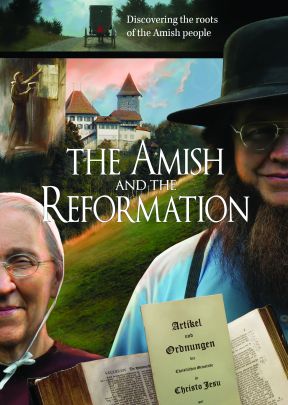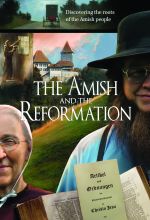The Amish and the Reformation - .MP4 Digital Download
The Amish and the Reformation traces the origins and beliefs of the Old Order Amish of America and gives a uniquely personal view of Amish life by former members of the group.
- Item 501781V
- Region: All
- Media Type: Digital Video
Alternate formats: DVD - $5.99
Description
The Amish and the Reformation traces the origins of the Old Order Amish of America and gives a uniquely personal view of Amish beliefs by former members of the group. Beginning with Luther's 95 theses, the program describes the advent of the Reformation, the establishment of a reformed state sponsored church in Switzerland and the formation of the breakaway Anabaptist Movement. From its Anabaptist origins the Amish developed as a unique sub-group under the leadership of Jakob Ammann. Host, Joseph Graber, a former member of the Amish Church traces his family origins back to the Reformation era and gives unique insights into how Amish beliefs have changed over the centuries.
Editorial Reviews
Video Librarian, November/December 2017
The year 2017 marks the 500th anniversary of Martin Luther nailing his 95 theses to the doors of a Catholic church (symbolically, if not necessarily literally), the key event that launched the Reformation movement. Many subsequent dominoes fell before the Amish arose, including the familiar history of martyred reformers and the struggle to translate the Bible and worship services into common languages. Clashes taking place between different Reformation factions led to the Anabaptist movement in Switzerland, which resulted in a populist shift toward Christian fundamentals that stressed God's love and caring for one's neighbors. From the Anabaptists—who expanded West and developed a community in what would eventually become America—came the Amish, who continue to look, act, and talk like people from another century. What most know about the Amish—such as the way they dress and the fact that they eschew modern technology and conveniences—is certainly true. But filmmaker Joseph Graber, a former member of the Amish church, presents a more rounded view of the sometimes restrictive and harsh rules that govern their society. Several of Garber's own relatives and others who also left the Amish are interviewed, not so much with an axe to grind but rather to present a more nuanced perspective beyond the charming, horse-drawn carts. Recommended.
Customer Reviews
This product does not yet have any customer reviews




